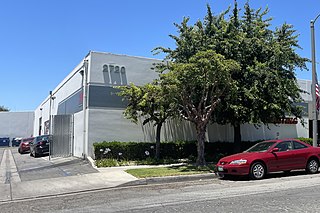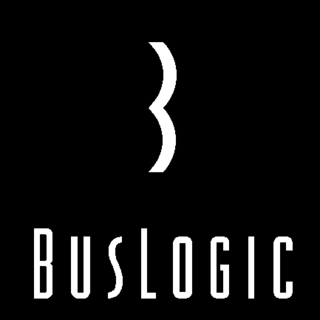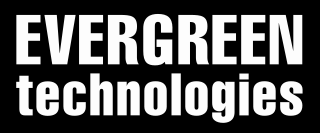
A sound card is an internal expansion card that provides input and output of audio signals to and from a computer under the control of computer programs. The term sound card is also applied to external audio interfaces used for professional audio applications.

Gateway, Inc., previously Gateway 2000, Inc., was an American computer company originally based in Iowa and South Dakota. Founded by Ted Waitt and Mike Hammond in 1985, the company developed, manufactured, supported, and marketed a wide range of personal computers, computer monitors, servers, and computer accessories. At its peak in the year 2000, the company employed nearly 25,000 worldwide. Following a seven-year-long slump, punctuated by the acquisition of rival computer manufacturer eMachines in 2004 and massive consolidation of the company's various divisions in an attempt to curb losses and regain market share, Gateway was acquired by Taiwanese hardware and electronics corporation Acer, in October 2007 for US$710 million.

The Covox Speech Thing is an external digital-to-analog converter (DAC) that plugs into the parallel printer port of a PC. It converts 8-bit digital sound using a simple R-2R resistor ladder into an analog signal output.
Labtec Enterprises Inc. was an American manufacturer of computer accessories active as an independent company from 1980 to 2001. They were best known for their budget range of peripherals such as keyboards, mice, microphones, speakers and webcams. In the United States, the company had cornered the market for computer speakers and headphones for much of the 1990s before being acquired by Logitech in 2001.

The PCradio was a notebook computer released by International Business Machines (IBM) in late 1991. Designed primarily for mobile workers such as service technicians, salespersons and public safety workers, the PCradio featured a ruggedized build with no internal hard disk drive and was optioned with either a cellular or ARDIS RF modem, in addition to a standard landline modem.

Reply Corporation, often shortened to Reply Corp., was an American computer company based in San Jose, California. Founded in 1988 by Steve Petracca, the company licensed the Micro Channel architecture from IBM for their own computers released in 1989, competing against IBM's PS/2 line. The company later divested from offering complete systems in favor of marketing motherboard upgrades for older PS/2s. Reply enjoyed a close relationship with IBM, owing to many of its founding employees, including Petracca, having worked for IBM. The company was acquired by Radius in 1997.

American Computer & Peripheral, Inc. (AC&P), also written as American Computer and Peripheral, was an American computer company based in Santa Ana, California. The company was founded in 1985 by Alan Lau and released several expansion boards for the IBM PC as well as a few PC clones before going bankrupt in December 1989. Obscure in its own time, the company's 386 Translator was the first plug-in board for Intel's newly released 80386 processor and the first mass-market computing device to offer consumers a means of using the 386 in July 1986.
IBM EduQuest, later shortened to EduQuest, was a subsidiary of American multinational technology corporation IBM that catered to the elementary and secondary educational market. A spin-off of the company's Educational Systems division spearheaded by James Elton Dezell Jr. (1933–2000), EduQuest developed software and hardware for schools. Most prominent was their line of all-in-one personal computers, whose form factor was based on IBM's PS/2 Model 25.

Aox Inc. was a privately run American technology corporation founded by Michael and Linda Aronson in 1978. Over the course of its 22-year lifespan, the company chiefly developed software and hardware for IBM's PC and compatibles, for the Personal System/2, and for the Macintosh. In its twilight years, the company designed multimedia and teleconferencing devices and chip designs. Aox was founded after Michael Aronson graduated from Harvard University with a doctorate in physics; he stayed with the company until 2000, when he incorporated EndPoints Inc. and switched to full-time fabless semiconductor design.
The Dot was a portable computer released by Computer Devices, Inc., in April 1983.

Prometheus Products, Inc. was an American computer peripheral manufacturer active from 1981 to 1996. The company primarily manufactured modems and sound cards for personal computers for the bulk of its existence.

Boca Research, Inc., later Inprimis, Inc., was an American computer company based in Boca Raton, Florida, and active between 1985 and 2002. The company manufactured a variety of expansion cards for the IBM PC and compatible systems, including memory cards, networking cards, sound cards, and graphics cards. Once a major player in the computer networking market, being the fourth-largest manufacturer of modems in 1996, Boca Research abandoned the PC hardware market entirely amid falling market share and manufactured set-top boxes in the last years of its existence.

BusLogic, Inc., was an American computer company active from 1988 to 1996. It specialized in the production of Small Computer System Interface (SCSI) device controller chips and controller expansion cards, becoming a dominant player in that market, behind only Adaptec. In 1996, the company was acquired by Mylex Corporation.

Evergreen Technologies, Inc., was a privately owned computer company active from 1989 to 2005 that manufactured a wide variety CPU upgrade chips for x86-based personal computers. Based in Corvallis, Oregon, the company enjoyed a heyday in the 1990s, becoming a market leader in the CPU upgrade segment.
Willow Peripherals, Inc., was an American computer hardware company active from 1986 to 2004 and based in New York City. The company was well known for their frame grabber and television output adapter cards for the IBM Personal Computer and adapters. Willow was based in Port Morris in the South Bronx for most of its existence.

Genoa Systems Corporation, later Genoa Electronics Corporation, was an American computer multimedia peripheral vendor based in San Jose, California, and active from 1984 to 2002. The company was once a prolific and well-known manufacturer of video cards and chipsets. They also dabbled in modems, tape drives, sound cards, and other peripheral expansion cards. The company was a founding member of the Video Electronics Standards Association (VESA) and were instrumental in the development of Super VGA.
Micronics Computers, Inc. was an American computer company active from 1986 to 1998 that manufactured complete systems, motherboards, and peripherals. Based in the San Francisco Bay Area, Micronics was one of the largest domestic motherboard manufacturers in the United States in the 1990s. After acquiring Orchid Technology in 1994, the company entered the market for multimedia products, such as graphics adapters and sound cards. In 1998, Micronics was acquired by Diamond Multimedia.
Parallan Computer, Inc., was an American computer company active from 1986 to 1999 and based in Mountain View, California. The company was best known for their line of servers and collaborations with IBM for the latter's PS/2 Server range. In 1994, the company merged with Meridian Data, Inc., assuming the latter's name and marketing CD-ROM servers before moving into the network-attached storage (NAS) market with the Snap! Server. In 1999, Quantum Corporation acquired Meridian Data for $85 million.

Colorado Memory Systems, Inc. (CMS), was an American technology company independently active from 1985 to 1992 and based in Loveland, Colorado. The company primarily manufactured tape drive systems, especially those using quarter-inch cartridges (QIC)s, for personal computers and workstations. Colorado Memory Systems was founded by Bill Beierwaltes as an offshoot of his previous company, Colorado Time Systems, also based in Loveland. It was acquired by Hewlett-Packard in 1992.
DacEasy, Inc., originally Dac Software, Inc., was an American developer and publisher of productivity and accounting software active from 1985 to 2000 and based in Dallas, Texas. They were best known for their namesake DacEasy suite of accounting software for the IBM Personal Computer and compatibles. Launched in April 1985, DacEasy was the least expensive integrated accounting software package on the market, at under US$50. In 1987, the DacEasy company was acquired by Insilco Corporation, a conglomerate based in Connecticut, who kept DacEasy around as an independently run subsidiary. In 1991, Insilco sold DacEasy to Sage Software of the United Kingdom. Like Insilco, Sage kept DacEasy around as a subsidiary, until 1999. Sage continued to develop an accounting package with the DacEasy name until 2019.














